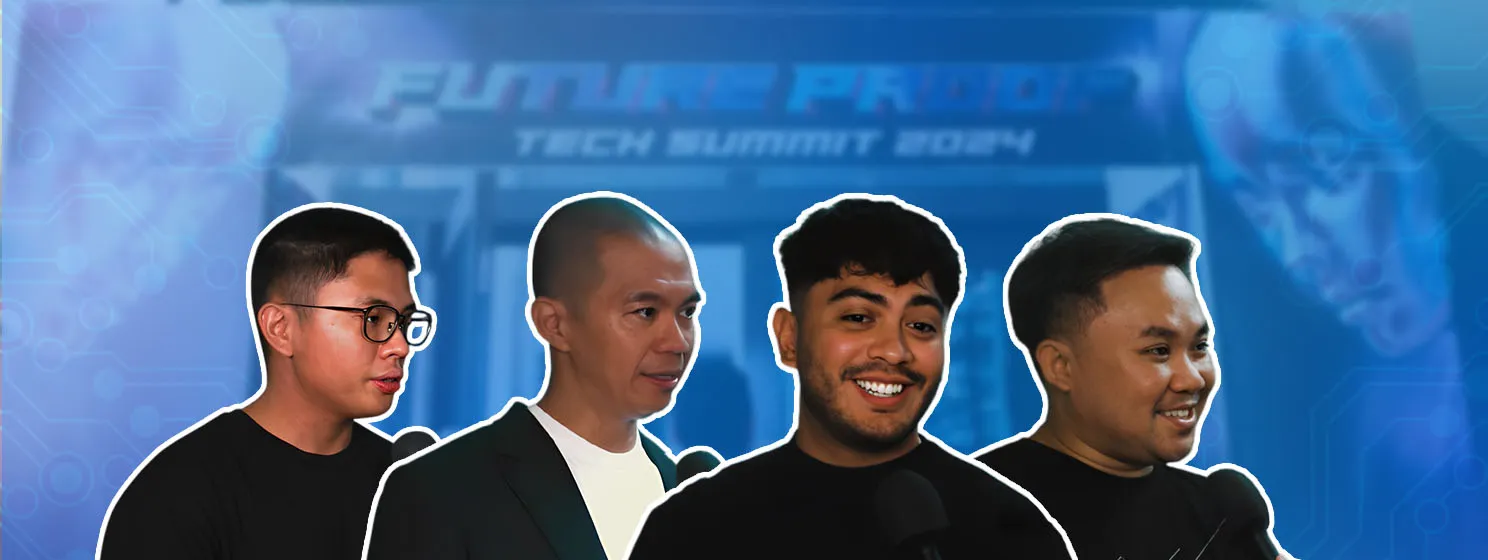|
Getting your Trinity Audio player ready...
|
The Philippines is emerging as a trailblazer in Web3 and blockchain innovation. With a growing pool of talent, a thriving entrepreneurial spirit, and a tech-savvy population, the country is poised for a blockchain revolution. However, as with any emerging technology, widespread user adoption remains a challenge for Web3 startups.
To help entrepreneurs navigate the Web3 space, we spoke with key players in the local tech ecosystem, including startup founders and industry experts, at the Future Proof Tech Summit held at the Podium Hall from October 10 to 11. Their insights offered valuable guidance on how local startups can overcome adoption hurdles, attract global investors, and build a sustainable Web3 future.
One of the obstacles facing Web3 applications is complexity. While blockchain technology is powerful, it can be intimidating for everyday users. Apps need to be easy to use and intuitive, removing the “crypto factor” that often discourages potential users to achieve mass adoption.
Rich Mirkie, Co-founder of Motions Web3 Venture Studio, shared his thoughts on this issue, saying, “A lot of users have no idea how to use any of these blockchain apps… I think people need to simplify this and get rid of that crypto factor and not show all the tech behind it, but just show how to actually interact with the app.” Mirkie believes that user experience (UX) should be at the forefront of every Web3 application. He compares the ideal Web3 experience to using mainstream social media platforms, saying, “Make it like the same kind of experience as someone who uses Facebook or Instagram.”
Education plays a role in blockchain adoption. However, educating users about the potential of Web3 can be a slippery slope. If content focuses too heavily on the financial aspects or the speculative nature of the digital currency, it can undermine trust in the technology.
Jiro Reyes of blockchain education platform Bitskwela highlights this challenge. “When we have a mix of financial shilling in our content for education, they lack trust… it’s a more or less effective way in delivering education to the mass markets,” he says.
To overcome this, Reyes suggests highlighting practical use cases and the benefits of blockchain beyond just financial transactions. By presenting Web3 as a tool for improving everyday life, startups can create a stronger connection with potential users.
Despite the challenges, blockchain technology already impacts various sectors in the Philippines. As Paulo Caperig of Kaia DLT Foundation points out, blockchain is now being utilized to streamline government processes, reduce costs, and enhance efficiency. “Our own government is tokenizing their own documents, so that saves a lot of costs. As for banks, when you tokenize bonds or certain other financial instruments, you make it easier for banks to move money around without delay,” he notes.
This is just one example of how blockchain can solve real-world problems. But as Caperig emphasizes, adoption cannot happen without proper regulation, “[If] we want adoption, we have to adhere or maybe play by the rules of governments, and we have to protect the little man from being squashed, right from being scammed,” he notes. Caperig’s point stressed the importance of establishing a balanced regulatory framework that fosters innovation while safeguarding consumers.
For Filipino Web3 startups to succeed on the global stage, they must think beyond local challenges and consider how their solutions can resonate with international markets. John Aguilar, creator of CNN Philippines show, The Final Pitch, advises entrepreneurs to broaden their scope and avoid getting bogged down by hyper-local issues: “We’re so hyper-local with some of the problems that we’re trying to solve that we forget the big picture.”
“To be able to think bigger, think global, and think of solving problems beyond what you understand in your world, I think that would make you a more attractive startup.”
Aguilar believes that solving global problems can help startups gain traction with international investors, who always seek scalable solutions to address global challenges.
To help local startups scale globally, venture builders like Block Dojo in the U.K. are stepping up with invaluable support and resources. Block Dojo’s incubation program is designed to equip Filipino entrepreneurs with the tools, mentorship, and funding to turn their ideas into global success stories. Through two six-week incubation programs held in the Philippines this year, Block Dojo connected startups with a network of investors and industry experts, helping them refine their business models, expand their reach, and gain traction in the international market.
As efforts continue to pour in support of Filipino startups, the path to Web3 adoption becomes clearer. With strong talent, innovative ideas, and a supportive ecosystem, Philippine startups have the tools to drive Web3 forward. By focusing on user-friendly design, practical education, and global thinking, they can turn challenges into growth opportunities, paving the way for a thriving blockchain future in the country.
Watch: Futureproof Tech Summit 2024—Exploring new AI-blockchain business models

 07-03-2025
07-03-2025 





